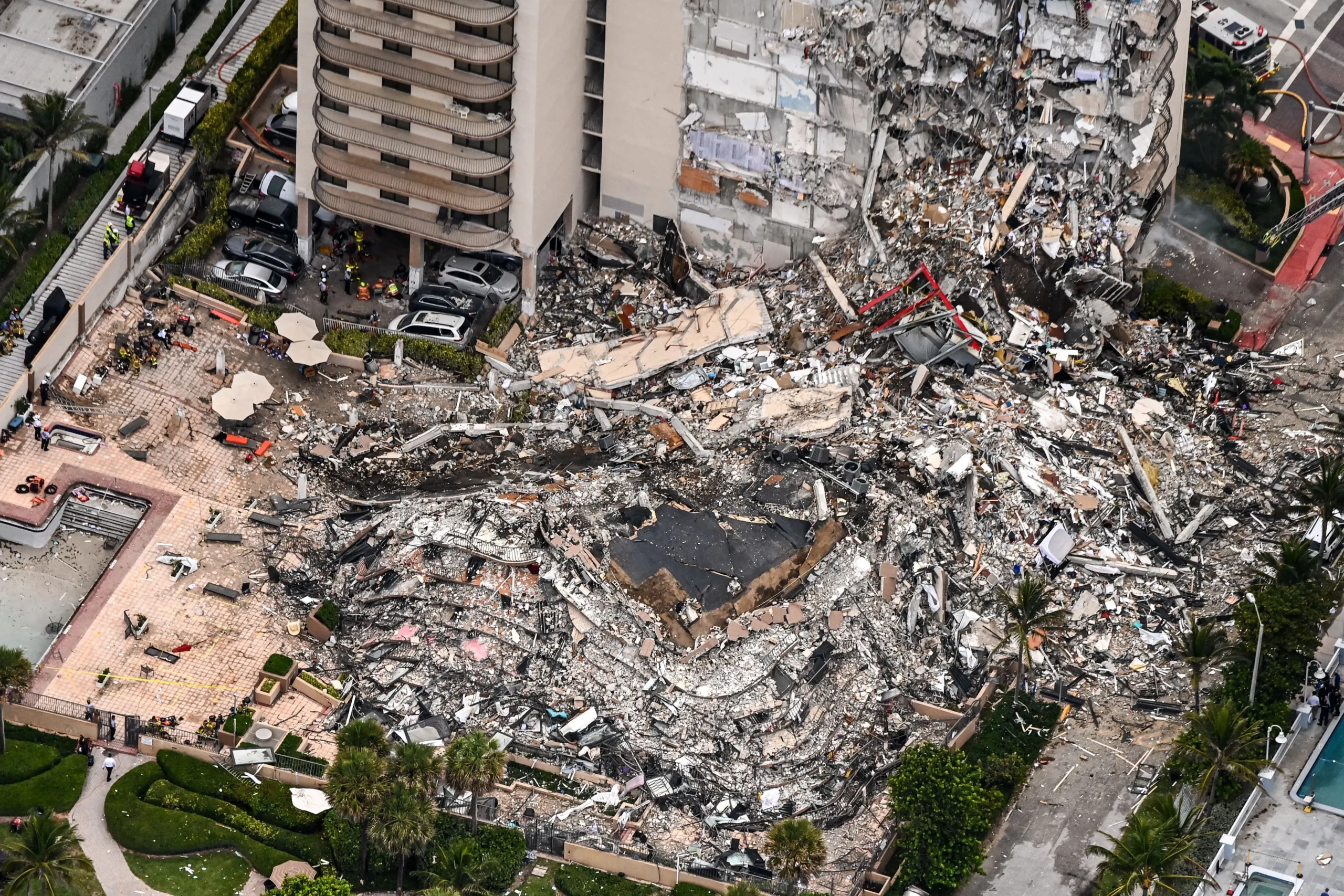● Milestone inspections are needed for residential communities including mixed-use buildings.
● All condominium and cooperative buildings 3-stories or higher must conduct their milestone inspection before the 30-year mark unless an earlier inspection is justified by the local enforcement agency. It allows buildings that reach 30 years of age on or after 7/1/22 but before 12/31/24 an extra year to complete their milestone inspections and SIRS.
● Local enforcement authority now has the ability to extend the deadline for a building upon showing with good cause that the building has entered into a contract with an engineer or architect, but due to demand, the report cannot be reasonably completed prior to the deadline.
● Permitting a report issued by an engineer or architect that inspected the building(s) before 7/1/22 if the inspection and report substantially complies with these requirements. However, the date calculating the next deadline becomes the date of that earlier report, rather than the statutory deadline.
● The milestone inspection must be conducted by a team of professionals, with an engineer or architect who are in charge of supervision and oversight.
● Requiring Board of Directors of Associations to distribute information pertinent to the inspection and the professional summary of the report to the owners, within specific statutory deadlines.
● Directing the Florida Building Commission to codify an inspection program into the Florida Building Code that includes inspection criteria, testing protocols, and standardized forms.
Due Date(s) for Milestone Inspection:
If 30 years from the Certificate of Occupancy (CO) passed before July 1, 2022 – the initial inspection is due by 12/31/24.
If the building reaches 30 years from CO on/after 7/1/2022 but before 12/31/24- the initial inspection is due by 12/31/25.
Phase I of the milestone inspection report must be furnished to the local enforcement authority within 180 days of receipt of notice.
If Phase II is required, a progress report to the local enforcement authority is due within 180 days of the date of the Phase I report.
With respect to Structural Integrity Reserve Studies (SIRS), the new law:
● Expands the type of professionals that may perform the visual inspection/prepare SIRS and Turnover Inspection Reports required by 718.301(4)(p).
● Permits reliance on the visual inspection for a milestone inspection performed within the past 5 years in connection with the SIRS.
● Eliminates the need for developers to conduct a SIRS prior to turnover but instead allows in place of the SIR, the Turnover Inspection Report
● Clarifies that any budget adopted on or after December 31, 2024 must include the funding specified in the SIRS and members cannot vote to waive or reduce funding of the SIRS reserves, or vote to use the SIRS reserves for any other purpose except for the components in the SIRS.
● Provides that members (owners) in buildings 3 stories or higher may still vote to waive or reduce reserve as to non-structural items only.
● Provides that members (owners) may still vote to waive or reduce reserve funding for one- or two-story condos (requirement for budget, as adopted by board, to include reserve schedule and funding for paving, painting, roofing and any component where the replacement or deferred maintenance cost exceeds $10,000 remains).
● Changes voting threshold to waive or reduce reserve funding to a majority of the voting interests as opposed to the prior requirement which was a majority of a quorum.
● Removes “Floor” and “Foundations” from the list of components that must be addressed in a SIRS. Adds “Structure”, “Primary Structural Systems” and “Exterior Doors” to the list of SIRS items.
2022-New legislation was passed due to the Surfside Collapse
Since Surfside, the issue of a multi-level building’s soundness and structure have come to the forefront. The Florida legislature has now imposed a statewide inspection program for condominiums and cooperatives for each building that is 3 stories or higher.
Milestone Inspection
Upon determination that a building must have a milestone inspection, the local enforcement agency will send written notice and within 180 days, a Phase I inspection must be completed, as noted below.
Milestone inspections will now be required within 30 years from the certificate of occupancy issued for a building. Any certificates of occupancy issued on or before 1992 will require a milestone inspection to take place by December 31, 2024. Thereafter, a milestone inspection will be required every 10 years. **However, if the building that is being inspected is within 3 miles of a coastline, then it must be inspected 25 years from the date of the certificate of occupancy and not 30 years.
The milestone inspection must be performed by a Florida licensed engineer or architect and must include a structural inspection of the building, including load bearing walls, primary structural members, and primary structural systems, as defined in Florida Statutes 627.706. The expert engineer/architect will need to attest to the life safety and adequacy of the structural components of the building, determine the general structural condition of the building as to safety and determine if any necessary maintenance, repair or replacement is required. This is considered Phase I of the process. If there are no signs of structural deterioration then Phase II reporting is not required. If there are signs of structural deterioration then a Phase II inspection and report is mandated. Phase II may involve destructive testing or non-destructive testing at the expert inspector’s direction.
Substantial structural deterioration is defined as distress that negatively affects a building’s general structural condition and integrity. It does not include surface imperfections, unless the expert determines that it is a sign of substantial structural deterioration.
The expert performing the inspection whether Phase I, II or both, must issue a written inspection report. The report must be sealed and have a specific summary as to all the expert’s material findings. The report must be provided to the association, the local building official who has jurisdiction over the building. The Association is required to distribute the milestone report to all of its owners, regardless of the findings. (and conspicuously post the report, and if an association that is required to have a website, post the report to the website of the Association).
The new law also gives local building officials the right to impose timelines and penalties for non-compliance with the law. County Commissions may also adopt ordinances establishing timelines to complete necessary repairs in the report; however, such repairs must commence within 365 days of receipt of the report, and if the Association fails to submit proof of commencement or completion of repairs, the local enforcement agency must review and determine if the building is unsafe for human occupancy.
Structural Integrity Reserve Study
A structural integrity reserve study means a study of reserve funds required for future major repairs and replacement of the common areas based on a visual inspection of the common areas. A structural integrity reserve study can be performed by any person qualified to perform such a study, but the visual inspection portion of the study must be performed by an engineer licensed under Florida Statutes Chapter 471 or an architect licensed under Chapter 481.
The study must state the common areas visually inspected, the estimated remaining useful life, and the estimated replacement cost or deferred maintenance expense, and provide a recommended annual reserve amount that achieves the estimated replacement cost or deferred maintenance expense of each common area visually inspected by the end of the estimated remaining useful life of each common element.
These reserve studies are to maintained in the association documents for 15 years.
The structural integrity reserve study must be completed by 12/31/24, and then every 10 years thereafter.
As of 12/31/24, the Association can no longer vote to waive or partially fund reserves for items listed on the structural integrity reserve study. Specifically roof, load bearing walls or other primary structural members, floor, foundation, fireproofing or fire protection systems, plumbing, electrical systems, waterproofing and exterior painting, windows, and any other item that has deferred maintenance expense that equals or exceeds $10,000. Furthermore, the Association can only use itemized reserve funds for their designated purposes for the items noted above and cannot use “pooled reserves”.






